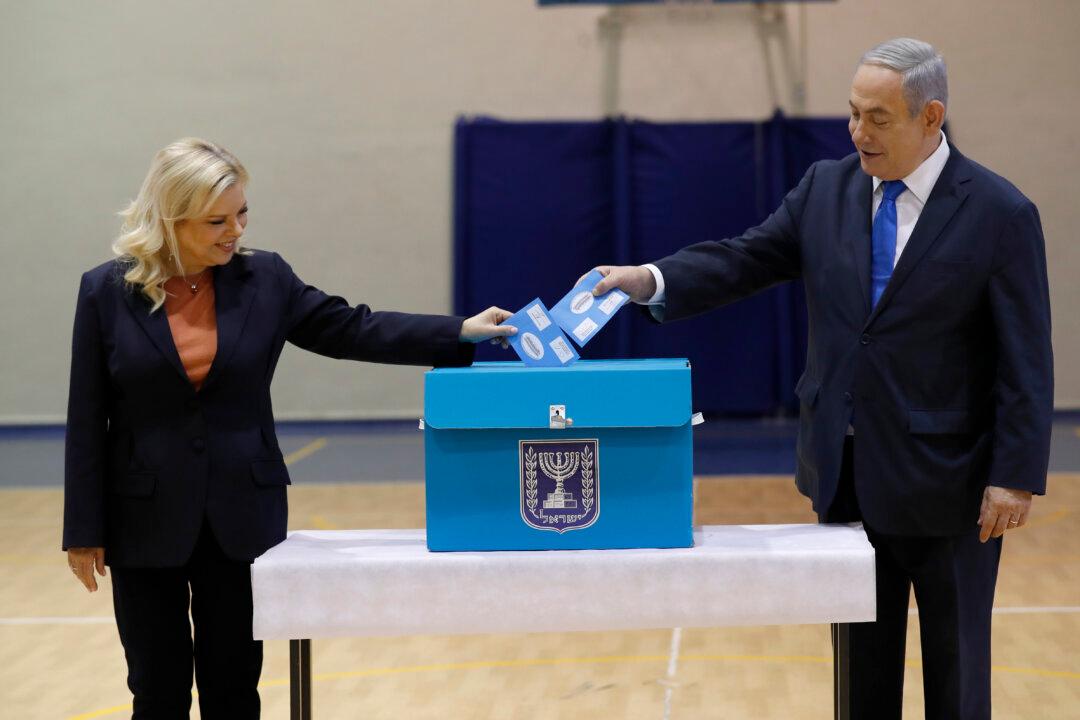Israelis voted on March 2 in the country’s unprecedented third election in less than a year to decide whether longtime Prime Minister Benjamin Netanyahu stays in power despite his upcoming criminal trial on corruption charges.
Netanyahu, the longest-serving leader in Israeli history, has been the caretaker prime minister for more than a year as Israel has weathered two inconclusive elections and a prolonged political paralysis. With opinion polls forecasting another deadlock, Netanyahu is seeking a late surge in support to score a parliamentary majority along with other nationalist parties that will deliver him a fourth consecutive term in office, and fifth overall.





